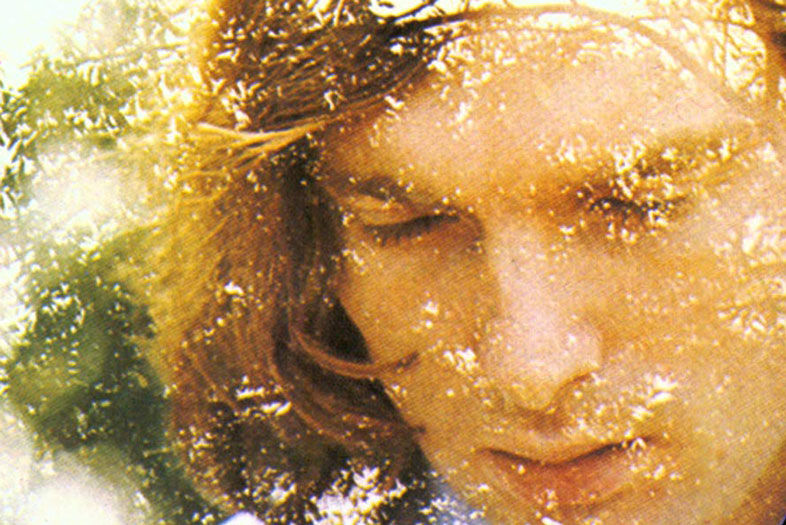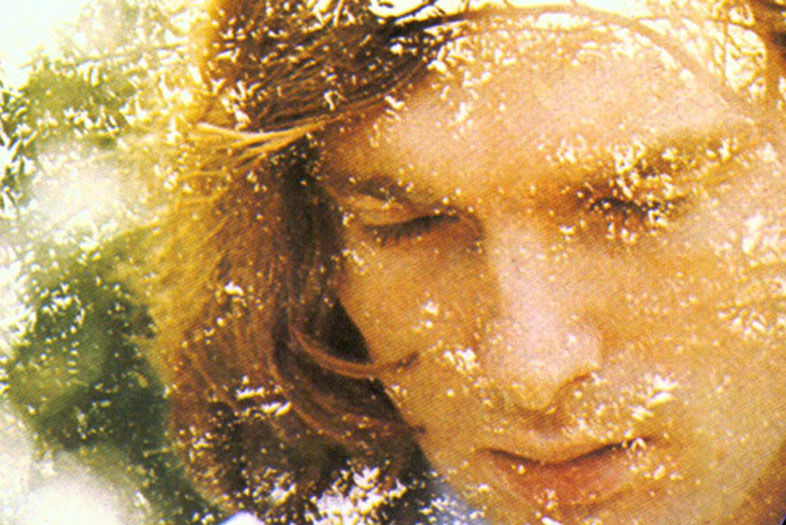Everybody knows “Brown Eyed Girl.” Everybody either loves or hates “Brown Eyed Girl.” And I completely understand both sides of the argument. As pop songs go, it has more or less everything going for it—a catchy melody, a sing-along hook, nostalgic remembrances of loves and summers past. But it’s also inescapable, somehow, after 52 years of existence. We’ve all heard it more times than we can count, and god help you if you’re an actual brown-eyed girl, as Sleater-Kinney’s Carrie Brownstein once lamented in an NPR All Songs Considered podcast.
But “Brown Eyed Girl” was something of a mixed blessing for Morrison. Though it was a top 10 hit for the Irish singer/songwriter in the U.S. and essentially launched his solo career after his time in the garage rock band Them, it led to creative differences with his label Bang Records. Label head Bert Berns had wanted Morrison to create more pop hits, while Morrison had lost interest, instead seeking to explore other musical ideas. And when Berns died unexpectedly in 1967, Morrison ended up locked into a contract, with Berns’ widow taking vindictive action against him in light of the disagreements about his music. He was kept out of recording studios in New York, and most of the city’s clubs likewise wouldn’t book him for live shows in an attempt to avoid legal repercussions as a result of his dispute with Bang.
Instead, Morrison began playing different kinds of shows in Boston coffeehouses, backed by flautist John Payne and bassist Tom Kielbana. Their songs became looser, airier, a far cry from the upbeat radio pop of The Hit, and ultimately led to a completely new direction and sound for Morrison. Eventually word got around to Warner Bros., who sent some producers to hear what he’d been working on, thinking they’d get “Brown Eyed Girl.” What they got was something far more interesting.
Warner Bros. wanted Morrison on the roster, but in order to avoid a prolonged legal battle, the label brokered an agreement with Bang. The first was that Morrison had to write three original compositions each month for a year, which he had to submit to Bang Records. What he did instead was record 36 songs in one single session, later released officially as The Contractual Obligation Session, that stands as one of popular music’s most hilariously petty moments. Most of the songs are just minute-long recordings of Morrison improvising meaningless phrases like “Twist and shake,” “Shake and roll,” “Stomp and scream,” “Scream and holler,” “Jump and thump”…you get the idea. The sheer absurdity of the exercise reaches high art during the trifecta of “You Say France and I Whistle,” “Blow In Your Nose” and “Nose In Your Blow.” Remarkably, Bang took no retaliatory action—perhaps they had a sense of humor after all.
The other condition was that Bert Berns’ publishing company would own half the copyright to any compositions released as a single within a year from September 12, 1968. So Morrison released an album without any singles. Astral Weeks, which turned 50 last year, is such a complete departure from his previous pop material that it almost sounds like an entirely different artist. Recorded over three days with an ensemble of seven musicians and overdubbed with a string section, Astral Weeks is a melancholy and airy album, inspired more by jazz than pop music. It’s an album that sounds like fall, chilly and dark and romantic, but showcasing a kind of beauty that Morrison’s previous recordings had only hinted at.
To hear Morrison sing a poetic, musically mellifluous phrase like “If I ventured in the slipstream, between the viaducts of your dream” on the album’s title track is to an artist reborn and reinvented. It’s easy to take a cynical look at Astral Weeks and view it as a deliberately anti-commercial move on Van Morrison’s part—low early sales and being ignored by critics sort of confirmed as much. But such an interpretation does a disservice to how masterful an album it truly is. Over time, its reputation grew, and it’s now seen, rightly so, as his masterpiece. Even five decades down the line, Morrison still performs highlights such as “Ballerina” and “The Way Young Lovers Do.” He also still plays “Brown Eyed Girl,” and it’s a unique artist that can manage to pull off both.
Van Morrison
October 8
North Island Credit Union Amphitheatre
Other recommended shows this week
Nikki Lane (October 3, Soda Bar): Singer/songwriter Nikki Lane is, ostensibly, a country artist, though not the kind of country artist that sweeps the CMAs or deals in six-figure Nashville recording contracts. Her sound incorporates more elements of pop and gritty rock ‘n’ roll, all of which puts her in a similar class as breakthrough artists like Sturgill Simpson and Kacey Musgraves. Maybe that six-figure contract’s not too far off after all.
Idles (October 7, Observatory North Park): Two of the best shows I’ve seen in recent years, or maybe ever, have been Idles shows. The Bristol, UK band is, on the surface, a rough and tumble punk band, but there’s an empathy and compassion in their music that’s warmly refreshing. Rather than writing songs about burning it all down, they show affection for their immigrant neighbors and friends (“Danny Nedelko”), decry nationalism (“Great”) and take down toxic masculinity (“Samaritans”). Not to mention the fact that their shows are just an absurd amount of fun. If you haven’t seen them, this is your chance to fix that.
Cass McCombs (October 9, Music Box): Cass McCombs has been making records for nearly two decades, quietly building up a reputation as one of the best songwriters in the game with album after album of subdued, albeit gorgeous indie folk. His new album Tip of the Sphere takes on more of a psychedelic direction, and he recently made a guest appearance on the latest album by Tuareg desert blues band Tinariwen, which just goes to show that after all this time he still has plenty of surprises up his sleeve.

PARTNER CONTENT
How Van Morrison Reinvented Himself on ‘Astral Weeks’




















